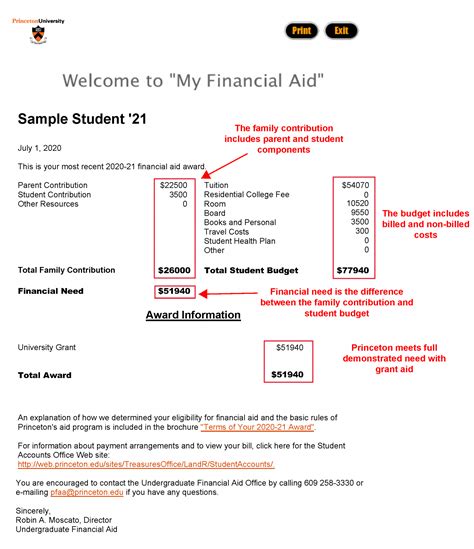Financial aid is money that helps you pay for college. It can come from the government, your school, or other organizations. If you’ve applied for financial aid, you’ll eventually receive an award letter. This letter will tell you how much aid you’ve been awarded and what types of aid you’ve received.

When will I get my financial aid award letter?
The timing of your financial aid award letter will vary depending on when you applied for aid and what school you’re attending. However, most schools will send out award letters in the spring or summer before you start school.
What should I do when I get my financial aid award letter?
Once you receive your financial aid award letter, you should carefully review it. Make sure that the information on the letter is correct and that you understand all of the terms and conditions of your aid.
If you have any questions about your financial aid award letter, you should contact your school’s financial aid office. They will be able to help you understand your award and make sure that you’re getting the most out of your financial aid.
Here are some tips for getting your financial aid award letter on time:
- Apply for financial aid as early as possible. The earlier you apply, the more time your school will have to process your application and send you an award letter.
- Submit all of the required documentation. Your school will need to see your tax returns, transcripts, and other financial information in order to determine how much aid you’re eligible for.
- Check your school’s website regularly. Your school may post updates on the status of your financial aid application on its website.
- Contact your school’s financial aid office if you have any questions. If you’re having trouble completing your financial aid application or understanding your award letter, don’t hesitate to contact your school’s financial aid office for help.
What if I don’t get my financial aid award letter on time?
If you don’t receive your financial aid award letter by the end of July, you should contact your school’s financial aid office. They will be able to tell you why your letter has been delayed and when you can expect to receive it.
If you’re worried about paying for college without financial aid, there are other options available to you. You can apply for scholarships, grants, and loans. You can also work part-time to help pay for your education.
Don’t give up on your dream of going to college just because you don’t have the money. There are many ways to pay for college, and financial aid is just one of them.
How to Appeal Your Financial Aid Award
If you’re not happy with the amount of financial aid you’ve been awarded, you can appeal your award. To do this, you’ll need to write a letter to your school’s financial aid office. In your letter, you should explain why you think your award is too low and provide documentation to support your claim.
Your school’s financial aid office will review your appeal and make a decision. If your appeal is approved, you may receive a higher financial aid award.
Common Mistakes to Avoid When Applying for Financial Aid
Here are some common mistakes to avoid when applying for financial aid:
- Not completing the FAFSA. The FAFSA is the Free Application for Federal Student Aid. It’s the first step in applying for financial aid, and it’s important to complete it accurately and on time.
- Not submitting all of the required documentation. Your school will need to see your tax returns, transcripts, and other financial information in order to determine how much aid you’re eligible for.
- Not meeting the deadlines. There are deadlines for applying for financial aid, and it’s important to meet them. If you miss a deadline, you may not be eligible for aid.
- Not understanding the terms and conditions of your aid. It’s important to understand the terms and conditions of your financial aid before you accept it. Make sure you know how much you’re borrowing, what the interest rate is, and when you have to start repaying your loan.
Tips for Getting the Most Out of Your Financial Aid
Here are some tips for getting the most out of your financial aid:
- Apply for as many scholarships and grants as possible. There are many different scholarships and grants available to students, so it’s worth taking the time to apply for as many as you can.
- Work part-time. Working part-time can help you offset the cost of college and reduce the amount of student loans you need to take out.
- Live frugally. Living frugally can help you save money on your expenses and make your financial aid go further.
- Make a budget. Creating a budget can help you track your spending and make sure that you’re not overspending.
- Be aware of your financial aid deadlines. It’s important to be aware of your financial aid deadlines and make sure that you meet them. If you miss a deadline, you may not be eligible for aid.
